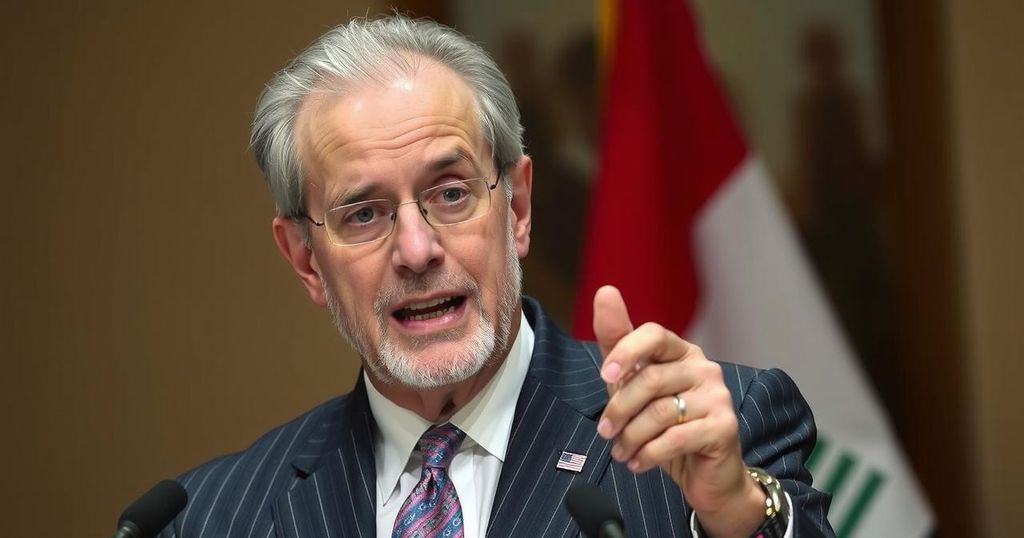Biden Describes Potential Collapse of Assad’s Regime as ‘Fundamental Act of Justice’

President Joe Biden characterized the potential fall of Bashar Assad’s regime as a pivotal moment of justice yet acknowledged the unpredictability it poses to the Middle East. He noted that the U.S. is actively tracking Assad’s whereabouts while reassuring that military intervention is not planned. This situation continues to unfold amid escalating tensions related to various conflicts in the region.
President Joe Biden declared the upheaval in Syria leading to the potential fall of Bashar Assad as a “fundamental act of justice” against longstanding oppression. While acknowledging the positive implications of Assad’s weakening hold, he described the current situation as “a moment of risk and uncertainty” for the Middle East. Biden noted that the United States was closely tracking Assad’s whereabouts, amid speculation that he may be seeking refuge in Moscow.
Biden credited the efforts of the U.S. and its allies for diminishing the power of Assad’s supporters, including Russia, Iran, and Hezbollah. He stated this development signifies a shift in the regional balance of power, emphasizing that these states can no longer uphold Assad’s authority. His remarks coincide with increasing tensions across the region due to various conflicts, including Israel’s confrontation with Hamas and the ongoing crisis involving Hezbollah in Lebanon.
The situation also raised potential concerns for incoming President Donald Trump, who remarked on social media about the collapse of Assad’s regime, suggesting that it was indicative of Putin’s decreasing support for Assad due to more pressing concerns in Ukraine. Biden’s administration expressed no intention to intervene militarily in Syria, as stated by National Security Advisor Jake Sullivan, amidst ongoing U.S. military operations focused on defeating ISIS and safeguarding regional stability.
Experts and officials reiterated the need for protection of civilians during this turmoil. Daniel B. Shapiro highlighted the complexities of the conflict, underscoring the dismal record of actions by various parties involved, including Assad’s regime. The Biden administration aims to ensure a political resolution that considers all humanitarian aspects of the ongoing situation, while some members of Congress raised concerns regarding the nature of the Syrian opposition, questioning its affiliations and intentions.
As the opposition groups push towards Damascus, there is a renewed focus on the fate of U.S. journalist Austin Tice, who disappeared over a decade ago amidst the chaos in Syria.
The current developments regarding the potential fall of Bashar Assad’s regime in Syria come after years of violent civil conflict that has claimed multitudes of lives and generated significant political instability in the region. President Biden’s comments emphasize the long-awaited shift in power dynamics, as Assad’s government has been continually supported by allies such as Russia and Iran. The involvement of various groups within Syria, including those linked to al-Qaeda, raises further complexities regarding stability and governance in any potential post-Assad era. Biden’s administration is particularly cautious following decades of failed military interventions in the region, seeking to balance immediate humanitarian concerns with long-term strategic interests.
In summary, President Biden’s statements highlight both the historic significance of Assad’s weakening grip on Syria and the precariousness of the ensuing situation in the Middle East. The complexities inherent in the Syrian civil war are far-reaching, affecting geopolitical relationships and regional security. As the Biden administration navigates these changes, the focus will remain on ensuring the protection of civilians and a peaceful resolution, while also assuaging fears of escalated conflict in a region already fraught with discord.
Original Source: apnews.com







